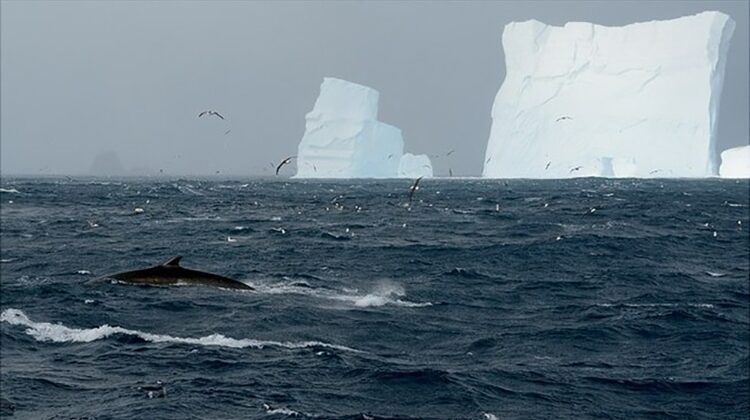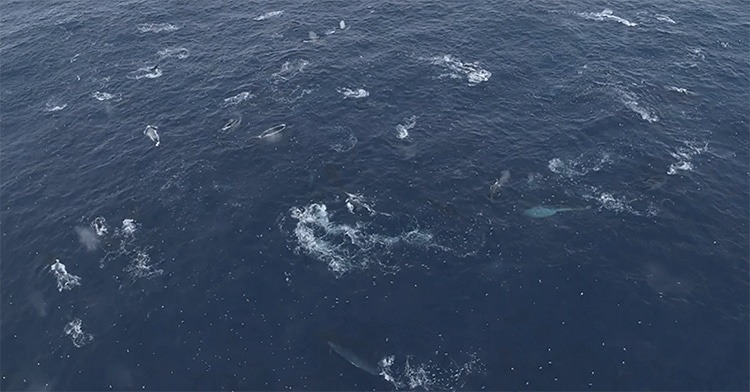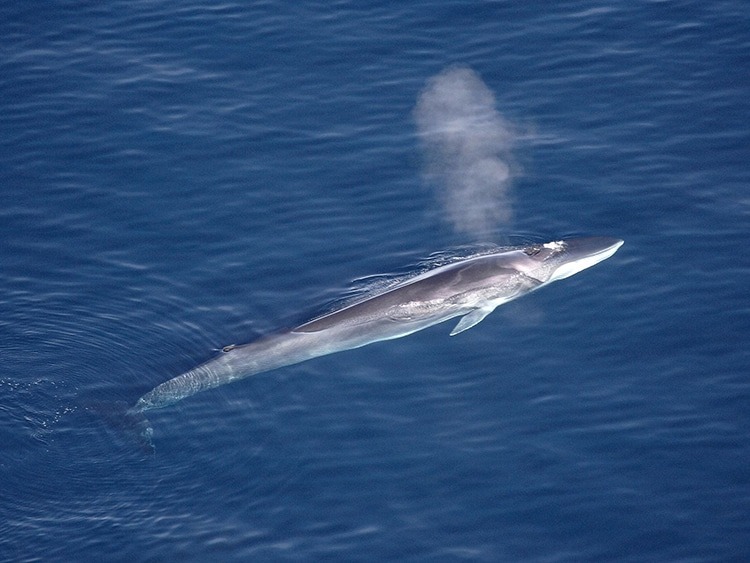
The fin whale could be a ray of hope in a sea of ominous ecosystem changes. During the whaling boom of the 20th century, the species was heavily hunted. Their populations in the Southern Hemisphere reached critically low levels. But in the Antarctic region, the second-largest whale in the world is making a promising comeback. Large fin whale feeding groups, more amusingly and jokingly known as whale parties, have returned to the waters where they were once hunted, as stated in a paper published in Scientific Reports. Their southern population may number 8,000, according to scientists, making them vulnerable.
A fin whale can grow to a length of over 60 feet and weigh 100,000 pounds. These enormous mammals have an average lifespan of 70 to 80 years. However, boats continue to pose a threat to the species. They consume krill like other whales do. Fin whales congregate in groups of varying sizes to feed above the water’s surface. A BBC team recently captured footage of a massive swarm of 150 whales that had not been seen in years. Fin whales leapt and danced as they fed in the chilly waters off the coast of Antarctica. According to Dr. Helena Herr, the author of the paper, “the water around us was boiling because the animals were coming up all the time and making splashes.” Just watching it while standing there was exciting.
Although there are currently thought to be 100,000 fin whales worldwide, the northern whales are much better understood than the southern whales. Despite their size, the latter’s breeding locations and habits are still unknown. Numerous whales were tagged by researchers, but tracking was hampered by the pandemic. Even today, the estimated 700,000 whales that were killed in the last century dwarf their current global population. However, the increasing population shows that conservation efforts are effective and that whales are tough individuals. The return of the whales is cause for celebration, even though climate change and boat-related threats still exist.
The southern hemisphere’s fin whale populations are moving back from endangered to vulnerable status.

They were almost exterminated by hunting, but they have since come back to feed in “whale parties” in their former hunting grounds.

h/t: [ABC.Net.Au, NBC]

Leave a Reply